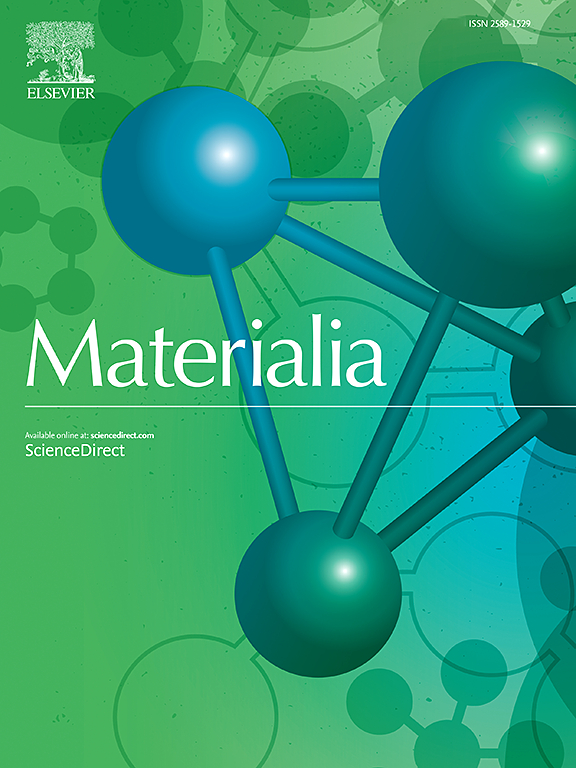在te处理的GaAs (111)B衬底上生长高质量CdTe薄膜
IF 3
Q2 MATERIALS SCIENCE, MULTIDISCIPLINARY
引用次数: 0
摘要
我们报告了利用分子束外延(MBE)技术,在GaAs(111)B衬底上实现了高质量的CdTe(111)薄膜生长,尽管晶格失配率高达14.6%。发现CdTe薄膜的质量高度依赖于GaAs衬底的预处理。值得注意的是,在高温下,te处理的GaAs(111)B衬底的结晶度最高。在50 ~ 320℃的宽温度范围内,在te处理的GaAs(111)B衬底上沿[111]方向成功地外延生长了CdTe薄膜,在更高的温度下观察到结晶度的改善。高质量CdTe薄膜的最佳生长温度为270 ~ 320℃。此外,由于应变松弛,薄膜的结晶度随着厚度的增加而提高。当CdTe薄膜厚度接近约500 nm时,光致发光测量显示缺陷相关发射显著减少,表明光学质量得到改善。本文章由计算机程序翻译,如有差异,请以英文原文为准。

High-quality CdTe thin film growth on Te-treated GaAs (111)B substrate
We report the high-quality growth of CdTe(111) films on GaAs(111)B substrates despite a significant lattice mismatch of 14.6 %, achieved using molecular beam epitaxy (MBE). The quality of the CdTe films was found to be highly dependent on the pre-treatment of the GaAs substrates. Notably, the best crystallinity was achieved on Te-treated GaAs(111)B substrates at elevated temperatures. CdTe films were successfully epitaxially grown along the [111] direction on Te-treated GaAs(111)B substrates over a wide temperature range of 50 to 320 °C, with improved crystallinity observed at higher temperatures. The optimal growth temperature for high-quality CdTe films was determined to be between 270 and 320 °C. Additionally, film crystallinity was found to improve with increasing thickness due to strain relaxation. When the CdTe film thickness approached approximately 500 nm, photoluminescence measurements showed a significant reduction in defect-related emissions, suggesting improved optical quality.
求助全文
通过发布文献求助,成功后即可免费获取论文全文。
去求助
来源期刊

Materialia
MATERIALS SCIENCE, MULTIDISCIPLINARY-
CiteScore
6.40
自引率
2.90%
发文量
345
审稿时长
36 days
期刊介绍:
Materialia is a multidisciplinary journal of materials science and engineering that publishes original peer-reviewed research articles. Articles in Materialia advance the understanding of the relationship between processing, structure, property, and function of materials.
Materialia publishes full-length research articles, review articles, and letters (short communications). In addition to receiving direct submissions, Materialia also accepts transfers from Acta Materialia, Inc. partner journals. Materialia offers authors the choice to publish on an open access model (with author fee), or on a subscription model (with no author fee).
 求助内容:
求助内容: 应助结果提醒方式:
应助结果提醒方式:


